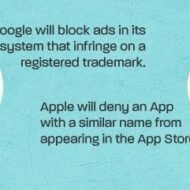Posted by Managementguru in Business Management, Entrepreneurship, How To, Marketing, Project Management, Startups
on Apr 24th, 2019 | 0 comments

Here’s to New Beginnings: Your Essential Guide to Starting a Small Business When you have a great business idea and strive to achieve financial independence, you might be thinking about launching a small business. Every huge corporation started with a small business, so why not? While you can definitely achieve success in the business world, keeping your small business successful for at least 2 to 5 years is a huge work. This game is worth the candle, though. So, if you’re trying to start a small business, here’s your handy guide to help you out: Start your journey with research Perhaps, you’ve already come up with a unique – or any – business idea, but is it going to bring you success? Does your business idea have many competitors? Before you take any step, do your own research. Consider running your idea through a simple validation process that will help you to figure out the future of that idea. First of all, your business idea should offer something – be it a service or a product – that the modern market needs these days. There are many ways to find out if a business idea will be successful, such as focus groups, deep research, and in most cases, trial and error. But before you go through trial and error ask yourself: Does the market need your product/service? Who are the people who will want to use your product/service? What are the companies that offer similar or the same product/service? Will you be able to compete with them? It’s important to ask confidently without any fear or disappointment. Create a business plan Any business idea requires a powerful business plan, which will become your guide during the process of establishment and business growth. There are many types of business plans, so choose the one that will suit your idea. If you’re looking for financial support from a financial institution or an investor, creating a basic business plan is essential. This business plan is usually thorough and long, and contains a set of sections that banks and investors check out when they’re validating a business idea. In case, you’re not looking for any financial support and you’re going to invest in your startup yourself, it may be enough to create a simple and short business plan just to give you the initial steps you should take. You can also come up with a working business plan on a piece of paper and change it as you start working on it. Consider your finances Generally, a startup doesn’t need too many investments, yet you’ll need some money to cover a number of expenses during the first months or even a year before your business will earn a profit. Calculate the one-time startup expenses like property leases, permits and licenses, legal fees, equipment, branding, insurance, inventory, market research, opening events, trademarking, etc. Then, calculate how much money you will need to keep your startup running for a year (your own paycheck, employee paychecks, utilities, rent, advertising, marketing, travel expenses, supplies, etc.) As soon as you find out an approximate amount of money, think about the ways to find them. You can either save money or borrow from family or friends. Many new entrepreneurs also apply for an SBA loan. Filling out an SBA personal financial statement may be tricky, but here’s a guide to help you out. Select a business structure Whether it is a limited liability company (LLC), a partnership, a sole proprietorship, or even a corporation, your next step is to select a business structure. Your business structure will affect a lot of factors, including your liability, business name,...

Posted by Managementguru in Entrepreneurship, Project Management, Startups
on Apr 14th, 2019 | 0 comments

Rolling Up Your Sleeves: 8 Steps to Registering as an Independent Contractor Are you ready to be your own boss? There are many advantages to becoming an independent contractor, some of which we’ll cover today. But it’s also a big responsibility – one that you and you alone must handle. Here are some general steps you can take to make your dreams of striking out on your own as an independent contractor a reality. Learn what an independent contractor is. First, learn more about what being an independent contractor means. To be an independent contractor, you must have multiple clients (companies) annually. You own your business at least in part, work with your own materials, tools, and expertise, and each job you take on is considered ‘temporary’, as you will leave when your task is complete. Pick your business name. Now, pick a name for your business. Make it something other than just your first and last name, as you can get some good marketing in with a clever or memorable name. Get licensed. Next, head down to your local city or county clerk’s office and figure out whether or not you’ll require a license to operate where you live. This is especially important if you work in any type of labor/contractor field. Often, you are required to be licensed in your trade as well. Get insured. Whatever you do, don’t skip this step! Your career as an independent contractor could be over as soon as it begins if you get entangled in a lawsuit with a client. Check out various professional liability insurance companies to find a policy that suits your industry and individual needs. Take care of the accounting end of things. Decide whether or not you’ll hire an accountant. In many cases, this isn’t necessary; many independent contractors get by fine on their own with accounting software. Make estimated tax payments. This can be a little tricky, but do your best to come up with a ballpark figure on what you’ll make in a year. Now, you must make four estimated tax payments throughout the year. Trust us, you do not want to end up owing all at once, or end up attracting the attention of the IRS in any way. Stay motivated. We all lose steam, and we all find ourselves stuck in a rut from time to time. But as an independent contractor, you need to maintain the will to work and consistently formulate ways to draw in new clients. Create a routine and schedule for yourself, even when work is thin. Enjoy the benefits. While it can have its tough moments, being an independent contractor is incredibly freeing. You make your own hours, you dictate what you’ll be paid, and most of all, it’s your chance to do what you love for a living. Appreciate it! Finding the right work-life balance can be difficult, but when you’re an independent contractor, you make the rules. Start off on the right foot by taking care of licensing, insurance, and accounting, and from there, the sky’s the limit....

Posted by Managementguru in How To, Intellectual Property Rights, Startups
on Jan 18th, 2018 | 0 comments

Why Trademark Your Startup? Trademarking is very essential to new businesses, but first time entrepreneurs are not adept with the nuances of securing a trademark and often do not realize how vulnerable they are when operating a business without one. Why Trademark Your Startup? It helps protect your business identity It protects against others using the same or similar business name or logo It provides solid proof of your legally protected rights Federal trademark registration rights extend nationwide A trademark registration is an asset (it may be licensed or sold). Registering company names and domain names alone does not provide trademark protection. Must-Know IP Law (Patent, Trademark and Copyright) Beware of mimicking a famous brand; most popular iconic brands such as Coke, McDonald’s and Pepsi are protected by the Trademark Dilution Revision Act. Search Google to see if your intended trademark already exists. Reasons why your trademark may be rejected If it is likely to cause confusion, mistakes or deception with a mark already registered If it simply contains a generic name If it primarily describes or deceptive about the geographic origins of goods and services If it is primarily merely a surname If it is deemed immoral, deceptive or scandalous If it falsely suggests a connection with people, institutions, beliefs or national symbols If it uses the portrait, name or signature of any living person without the approval of the person concerned The Federal Trademark Registration Process 1. Select your trademark 2. Hire a Trademark Attorney Registering a trademark is a LEGAL process with many potential trap doors. Hence, it is advised to hire a trademark attorney to guide you through the trademark search and application process. 3. Availability Search Doing a search by yourself may prove to be disastrous. It is likely you are not familiar with what could create a conflict. A trademark search must be comprehensive and complete to rule out any potential legal conflicts. Doing an inadequate research is a major reason many trademark applications are rejected by the government. Do I Need a Lawyer to Register My Trademark? 4. Application Your attorney will draft and file your application with the USPTO (IN USA) OR THE TRADE MARKS REGISTRY (IN INDIA). If approved you will receive a trademark registration certificate and if refused, you will receive a refusal notice. 5. Monitor and Protect It is your responsibility to monitor and enforce your trademark rights. Failure to monitor can cause complete loss of trademark rights (regardless of having federal registration). COPYRIGHT ...

Posted by Managementguru in Business Management, Entrepreneurship, Marketing, Startups, Strategy
on Dec 21st, 2017 | 0 comments

Let’s Learn the Nuances of Business Strategy How Do You Define Business Strategy? Business strategy is nothing but a series of decisions that are made by the management of a company in order to obtain or maintain a competitive advantage over a period of time. It shows the overall direction of a company. It is also future focused and contains long-term sustainable goals. For startups, creating business plans can be night marish and hectic, hence this short guide which throws some light on “How to use Powerpoint as an effective tool to showcase your bsuiness plan” to investors in a simple yet appealing manner. A great business strategy will encompass the following characteristics: A clear direction of where the company is going and concrete plans necessary to execute the decisions An unmistakable understanding of the company’s core competencies Will solve the marketplace demands and address real customer needs Will contribute to sustainable competitive advantage Will be properly documented but gives room for future change in accordance with the environment THE THREE BEST GENERIC BUSINESS STRATEGIES 1. COST LEADERSHIP This strategy is followed by market giants like Wal-Mart, McDonald’s, IKEA to name a few wherein, the companies focus on building a large market share by slashing the prices – mush lower than their competitors. Typically, such customers will be less loyal and more price-sensitive. The real challenge is to succeed at offering the lowest price, but still maintain profitability and a high return on investment. The company has to necessarily run a tight ship by controlling its operational costs to improve efficiency. 2. PRODUCT DIFFERENTIATION This strategy requires the company to develop products that are “better than” or “more unique than” its competitors. The main focus is to differentiate itself from its rivals. The differentiation could be in the form of higher-end quality materials, excellent customer service, unique company image or branding, or other customer oriented values. Typically, companies going for this strategy can charge premium pricing since their customers tend to be more loyal and less price-sensitive. 3. MARKET SEGMENTATION This strategy simply focuses on a niche or sub-market to sell your products or services to. This is best suited when you are competing in an overly saturated market. For example the gift basket industry is highly competitive and over saturated. If you choose to enter the field, you might have to choose a product differentiation strategy combined with appropriate market segmentation strategy. Hence you might focus on selling high end products to the wedding market. A Wonderful Infographic from Americanexpress.com that clearly explains what needs to be done to experience an explosive business growth… WHAT TO DO WHEN BUSINESS IS SLOW Write a business plan If you have never written one now is the time to grab a chair and fabricate a really crafty business plan with your mission, vision, values and marketing strategy included. Rebrand Work on your logo, test new colors, change your site layout, breathe some fresh life into your branding strategy. SEND A THANK YOU NOTE TO YOUR CLIENTS FIND NEW VENDORS Read a book Discover guerilla marketing tactics and best keep business secrets by reading Cold Pitch Create a list of prospects using leading networks like LinkedIn and reach out via email Create a lead magnet A lead magnet is an opt-in gift that you offer visitors, whether online or offline to encourage them to be part of your tribe and purchase your product or services. Let’s understand what makes a company innovative? 48% – coming up with new ideas for products and services 33% – listening to customers 33% – continuing to improve current product 33% – offering a unique product 28% –...

Posted by Managementguru in Financial Accounting, Financial Management, Startups
on Jan 22nd, 2016 | 0 comments

The Key Functions of a Finance Manager Finance manager is one of the important role-players in the domain of finance function. He must have a complete know-how on the areas of accounting, finance, economics and management. His position calls for judicious capability and analytical approach to solve various problems related to finance. A person who deals with finance related activities may be called finance manager. “Focus on a few key objectives … I only have three things to do. I have to choose the right people, allocate the right number of dollars, and transmit ideas from one division to another with the speed of light. So I’m really in the business of being the gatekeeper and the transmitter of ideas.” – Jack Welch The Finance Man Finance manager performs the following major functions Forecasting Financial Requirements It is the principal function of the Finance Manager where he is required to estimate the financial obligations of the business concern. He should evaluate how much finances are required to procure fixed assets and forecast the amount needed to meet the working capital requirements in future. Acquiring Necessary Capital The next step of a finance manager is to focus on how the finance is deployed and where it will be available. Investment Decision Best investment alternatives have to be considered to assure reasonable and stable return from the investment. He must be competent in the field of capital budgeting techniques to govern the effective utilization of investment. The finance manager must attach more importance to the principles of safety, liquidity and profitability while investing capital. Cash Management Cash management plays a major role in the area of finance because proper cash management also helps to meet the short-term liquidity position of the concern. Inter-relation With Other Departments Finance manager handles various functional departments such as marketing, production, personnel, system, research, development, etc. He must maintain a good rapport with all the functional departments of the business organization. “Rule No. 1 : Never lose money. Rule No. 2 : Never forget Rule No. 1.”― Warren...










